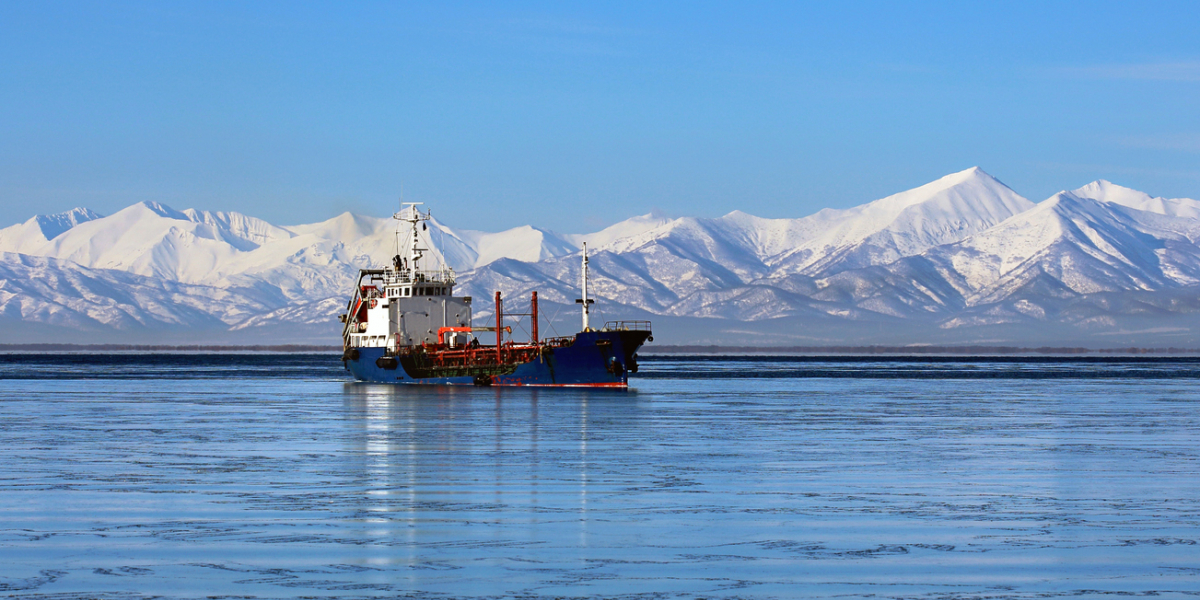
Smart Prosperity Institute is proud to be part of uOttawa’s Institute of Environment which offers graduate courses in environmental sustainability. As part of our mandate to support and promote the next generation of researchers, we invited this year’s cohort of Master’s of Environmental Sustainability students to share their research projects.
This blog forms one of two Graduate Student Spotlights for 2023. In this instalment, we feature upcoming research by Jeff Yaremko, Noah Gauthier, Rosabelle Rosario, and Ashley Padvaiskas.
My thesis project is a case study focused on Pond Inlet and Tallurutiup Imanga National Marine Conservation Area in Nunavut. This region has seen increased rates of shipping traffic due to reductions in sea ice coverage and a longer no-ice season, leading to higher risks of shipping accidents or disasters. Such an event can have severe consequences for vulnerable ecosystems and communities, especially if the capacity of the community to respond does not meet the growing risk.
With a focus on community perspectives regarding emergency preparedness and response, I will work alongside a community organization based in Pond Inlet to co-develop and implement a survey with the intention of capturing and analyzing these perspectives. This community organization is key to the project and will be involved in every step of the process. I also plan to review policy, reports, and guidelines (grey literature) to compare the community perspectives with current policy to highlight potential gaps. I hope to build on the growing collection of collaborative research that merges western and Indigenous knowledge while addressing an evolving concern for climate change adaptation.
Viewed as urban invaders and cottage destroyers, no matter where lampreys go, they are rejected, reduced, and reimagined. My SSHRC-funded research project, Daughterless Lamprey: Including Indigenous Ideas in Great Lakes Genetic Control Programs, uses Sea lamprey introduction in Canada as a case study to evaluate the appropriateness and possibilities of genetically engineering Canadian water commons. The genetic control of Sea lamprey has recently been included in the symphony of eradication methods employed on invasive species in Canadian commons, despite there not being adequate study of the socio-cultural and economic entanglements that exist between Sea lamprey and genetic control.
As a budding environmental anthropologist, I have a profound interest in studying multispecies assemblages to help better understand how human ecological relations have historically unfolded. I explore power dynamics in invasive species scholarship and discourse through the lens of ‘contact zones’ and ‘borders’ to deconstruct ontological dualisms that often place arbitrary barriers between nature and society. The significance of environmental sustainability and socio-cultural continuity around the Great Lakes depends on studying and building relationships around genetic knowledge acquisition and transfer between various stakeholders – suggesting the need for a multispecies ethnographic study.
My research explores the issue of future wetland loss in Ontario resulting from the More Homes Built Faster Act, recently passed by the Government of Ontario in November 2022. I will model the impacts of these changes by determining which wetlands may lose their provincially significant status and consequently be vulnerable to development. Additionally, my research will try to determine the net loss effects on ecosystem goods and services provided by wetlands.
The Act brings about changes to Ontario’s Wetland Evaluation System (OWES) with the result that the OWES will no longer evaluate individual wetlands as part of a complex of wetlands. Wetlands complexes are two or more wetlands that are functionally linked through migration corridors or foraging areas or surface water and groundwater connections. This will have a major impact on wetlands in Ontario as smaller wetlands will likely not score high enough to be designated as “provincially significant.” Wetlands with this designation are protected from development under the Planning Act in Ontario.
I decided to research this topic as a lot of my previous field work has been done around wetlands in the capital region, and I have a passion for the wildlife that wetlands support. Wetlands are also highly important for carbon sequestration and flood mitigation. This Act feels like 1 step forwards and 2 steps back for environmental protection in Ontario, and I’m hoping that this research can help influence policy when it comes to land planning. Although there is an undeniable housing crisis, this isn’t how to resolve it. This Act strips power from conservation authorities and will likely lead to a significant loss of wetlands in Ontario. I’m hoping that this research project can bring some awareness to how important wetlands are in Ontario and how significant the impacts will be.
Overcrowding of parks and protected areas can lead to the destruction of sensitive ecosystems and a significant loss of ecological integrity. My research explores opportunities for sustainable recreation in parks and protected areas. Specifically, I will conduct a case study of the implementation of a Visitor Use Management framework in Gatineau Park. I hope to inform the development of new management strategies that will better conserve the environment and biodiversity within the park, while still offering quality visitor experiences. I hope that Gatineau Park can serve as an exemplary park in its management approaches for other protected areas to learn from and adopt.
To learn more about the uOttawa Institute of the Environment, check out their website here.